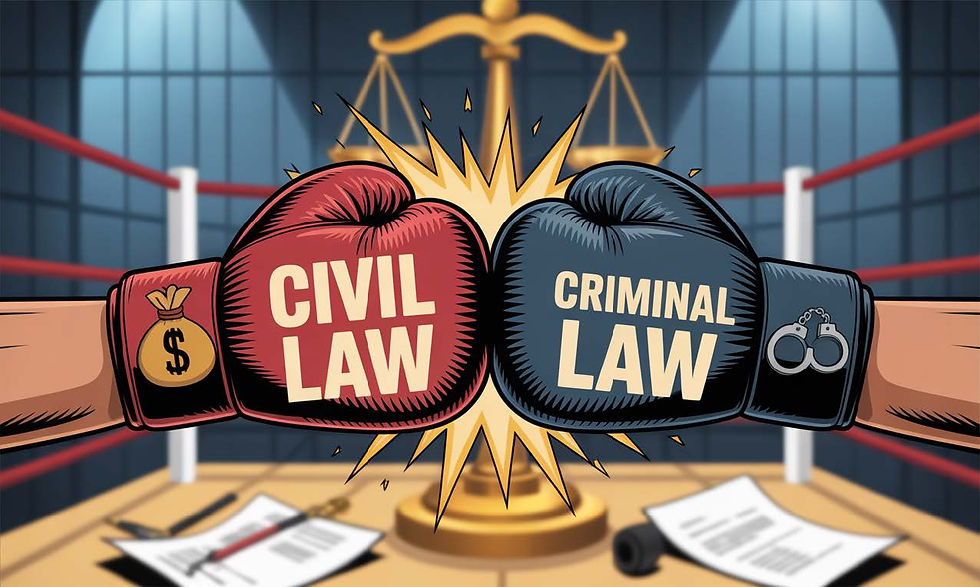Copy of Copy of The Basics: Definition of a Crime
- Wix Expert Studio

- Aug 5
- 2 min read
Introduction
How would you define crime? Would it be the same definition as your peers? Different people might define crime based on its punishment, the defendant’s psychology, surrounding social norms, and more. In criminal law, a crime is defined by its criminal elements. Read on to learn more.
Elements of a crime
If you're wondering, “Did I commit a crime?”, the law starts with a basic definition: a crime is an act committed in violation of the law. Thus, illegality is a core feature of crime. Crimes are violations of criminal law.
Another way to understand criminal law is through understanding what it is not. Criminal law is different from civil law. Criminal law does not require an injury or that a crime was actually completed. For example, attempted murder is still a crime whether the victim was murdered or not. By comparison, civil law generally requires injury or harm. In civil law, money (damages) are the penalty for the harm. In criminal law, the penalty for the crime could be imprisonment, fines, restitution, and more. This core difference is illustrated below.

Additionally, criminal law defines crimes by their elements. Below, let’s consider the elements of a crime: the guilty act, guilty mind, concurrence, and (sometimes) causation.
Guilty Act: Actus Reus
One core element of a crime is the “guilty act.” This is known as the actus reus. The actus reus is the voluntary act that the defendant committed. The actus reus can also be a failure to act or an omission, where the defendant had a legal duty and could reasonably perform that duty.
Guilty Mind: Mens Rea
Generally, before an act can be considered a crime, the “guilty act” must be accompanied by a “guilty mind.” The guilty mind is called the mens rea. The mens rea is the state of mind that signifies what the defendant’s intentions were while committing the actus reus. The state of mind is often referred to as the defendant’s intent.
Concurrence
A crime happens when the guilty mind and guilty act happen together. Therefore, concurrence means the mens rea and actus reus must coincide at the same moment.
What Is General Intent vs. Specific Intent?
General intent is intent to commit the crime. It is a mens rea where the defendant is generally aware of all the factors amounting to a crime. General intent can usually be surmised from the actions themselves. For instance, crimes of battery and false imprisonment require general intent.
On the other hand, specific intent means the defendant did not only intend to act, but intended to act for a criminal purpose. The defendant has a specific objective, which is to bring about the specific crime. This is best demonstrated by examples of specific intent crimes, such as attempt. To be guilty of attempt, a defendant has to specifically intend that the crime will be completed.

Comments